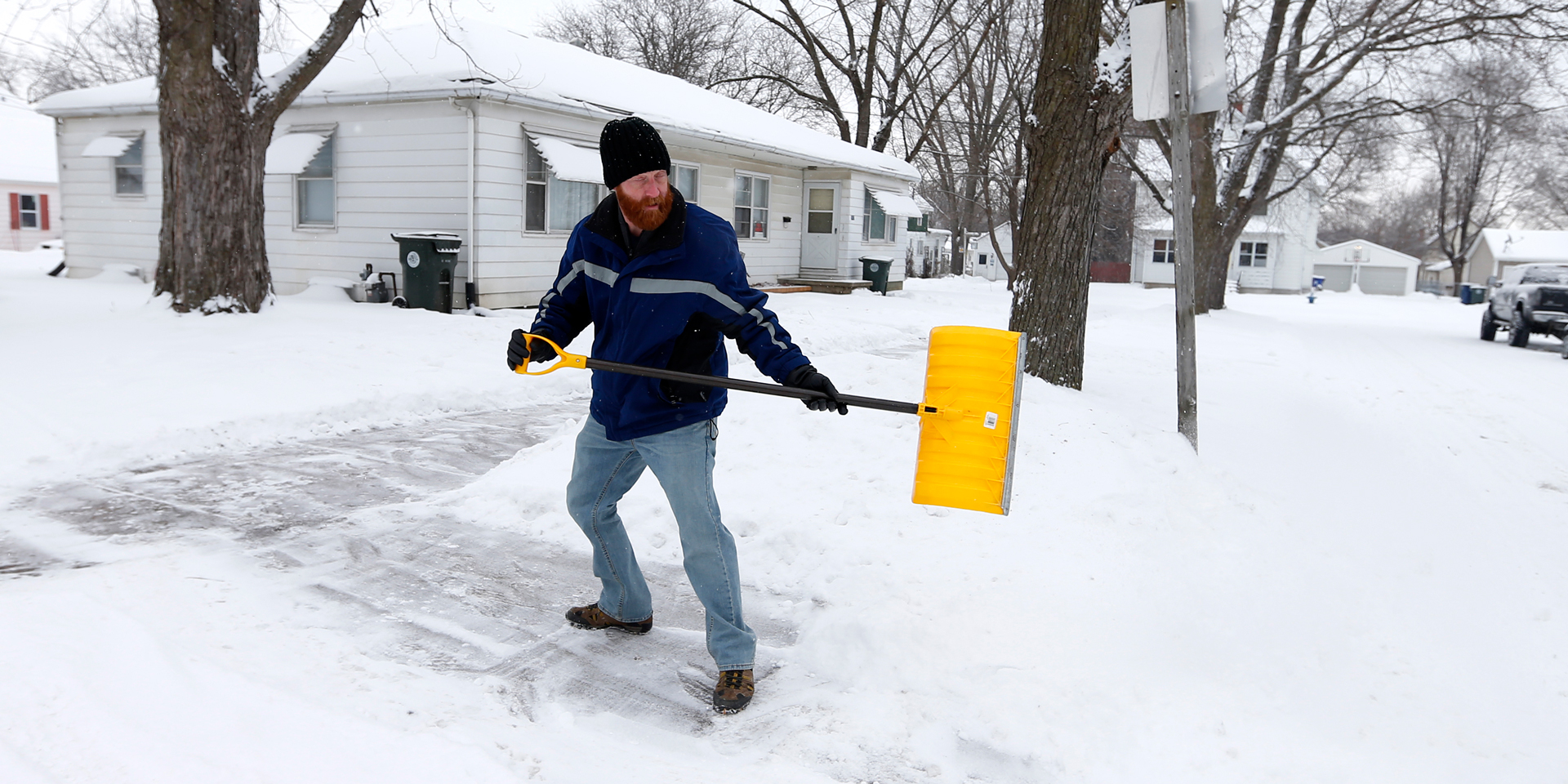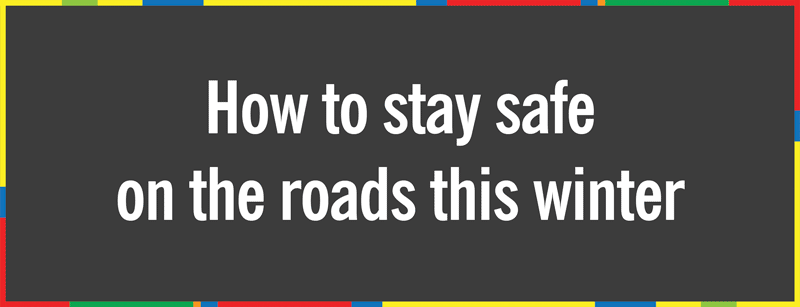 Dupaco member Nick McElligott, of Waterloo, Iowa, shovels snow from his sidewalk. (B. Pollock photo)
Dupaco member Nick McElligott, of Waterloo, Iowa, shovels snow from his sidewalk. (B. Pollock photo)
How to stay safe on the roads this winter
During winter, it’s easy to become complacent about snow and slush. But it’s important to always respect the weather conditions and drive responsibly.
Not only can this help save lives, but it can save you money. Responsible driving reduces traffic collisions, in turn reducing auto insurance claims.
The fewer claims, the less everyone pays for coverage.
Are you following these winter-safe driving habits?
Check the local weather forecast
Know what temperatures and weather conditions to expect before you drive so you can decide whether you should leave earlier or possibly delay your trip.
Slow down
You’ll get there when you get there. The faster you drive, the more energy it takes to slow down—especially when roads are slick.
Avoid tailgating
When it’s slippery, stay at least eight to 10 seconds behind the vehicle in front of you.
Be cautious on bridges
Remember, bridges and overpasses freeze first.
Know the limits of four-wheel drive
Four-wheel drive will help you start moving at an intersection. But it’s four-wheel drive, not four-wheel stop—it won’t help you slow down on ice.
Skip cruise control
Turn off cruise control when it’s slippery to help you stay in control of your vehicle.
Pause first
If you’re traveling too fast for weather conditions, first remove your foot from both pedals. You can lose control of your vehicle by braking immediately or braking too hard.
Understand your brakes
Do you have conventional or antilock brakes? With conventional brakes, you need to pump them to avoid losing control of your vehicle. With antilock brakes, you need to push down the pedal and hold it (even if it makes an unsettling sound).
Watch for tire spray
Watch for vehicles preparing to pass you so you can turn on your wipers in advance to help keep your windshield clear.
Stay in your happy place
Don’t weave in and out of traffic. Only change lanes when it’s practical to do so—and well ahead of your exit or turn.
Stay safe during a collision
If you’re involved in a collision, stay in your vehicle. If you must exit, do so on the curb or shoulder side. Depending on your situation, you’ll need to call family, police, your insurance agent and/or a tow truck.



